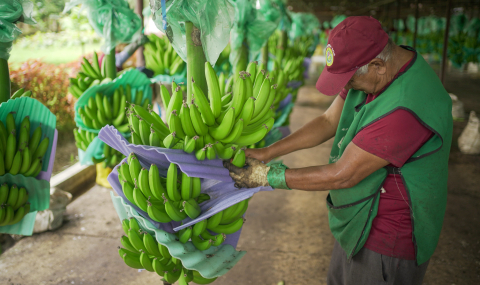MusaSentinel: une surveillance plus intelligente pour maintenir le commerce des bananes et des bananes plantains
Les bananes et les bananes plantains figurent parmi les cultures vivrières les plus importantes au monde et soutiennent la sécurité alimentaire, les moyens de subsistance des populations rurales et les recettes d'exportation. Alors que seulement 16% environ de la production mondiale fait l'objet d'un commerce international, les 84% restants sont consommés dans les pays de production, ce qui en fait une source essentielle de nourriture et de revenus pour des millions de personnes. En Amérique latine et dans les Caraïbes, plusieurs pays se classent parmi les principaux exportateurs mondiaux, l'Équateur étant le premier exportateur de bananes traditionnelles et biologiques et le Pérou, le troisième exportateur de bananes biologiques.
Malgré son importance économique et sociale, le secteur est confronté à d'importants problèmes phytosanitaires qui menacent la productivité, le commerce et les revenus. Certaines maladies très destructives pour les bananiers, y compris la fusariose, causée par le Fusarium de race tropicale 4 (Foc TR4), la cercosporiose noire et la maladie de Moko, peuvent se propager rapidement et causer de graves pertes de rendement difficiles à compenser. Au Pérou, environ 1 500 hectares sont affectés par le Fusarium de race tropicale 4, tandis qu'en Équateur, plus de 3 200 hectares ont été détruits par la maladie de Moko, ce qui a fait diminuer les volumes d'exportation et menace les revenus des producteurs.
La mauvaise traçabilité du matériel végétal de plantation a entravé la détection précoce des foyers de maladie et les contraintes de capacité au sein des organisations nationales de protection des végétaux ont fait augmenter le risque de propagation de maladies et de dérèglement des marchés.
